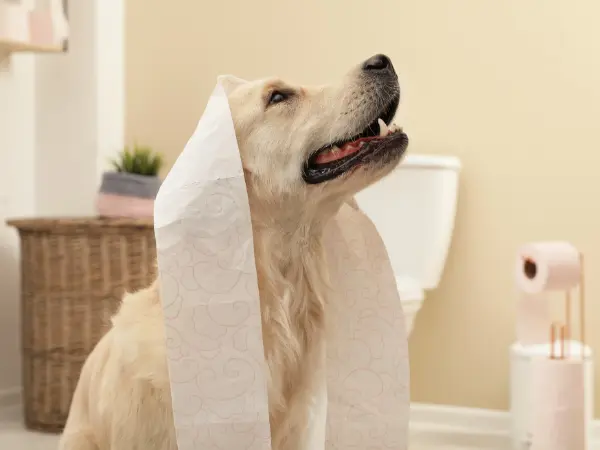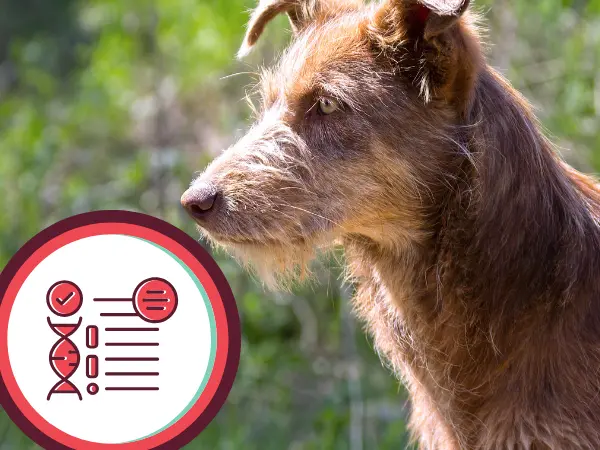Halloween wouldn’t be complete without trick-or-treating and, of course, Halloween candy. Though these Halloween goodies may be nothing but sweet treats for us, they can be dangerous to our furry companions. As pet parents, it's crucial to be aware of the risks that Halloween candy poses to our dogs and cats—and how to minimize these risks.
This Sploot Vets article contains essential information on toxic and dangerous ingredients and components in candy, as well as steps to take in case a dog or cat eats Halloween candy.
Overview:
- Most Halloween candy is not safe for cats and dogs
- When pets eat Halloween candy, they can experience digestive problems from the high levels of sugar or more severe poisoning from ingredients that are toxic to dogs and cats.
- It is important for pet parents to be aware of what toxic ingredients to watch out for and what to do in case of accidental ingestion.
Can Dogs & Cats Eat Halloween Candy?
No, dogs and cats must not eat Halloween candy. Halloween candy can contain ingredients that are toxic to our furry friends; chocolate is just one example. Further in this article, we will talk about other toxic candy ingredients to watch out for — such as xylitol, raisins, certain nuts, and more.
In addition, even if a candy does not contain any of the listed toxic ingredients here, they usually contain a high amount of sugar, which can cause gastric disturbances in dogs and cats. In short, there is way too much at stake and nothing to gain by giving pets Halloween candy.
→ Has your dog or cat eaten candy? Jump to this section for the next steps!
Instead of giving dogs and cats candy, it would be best to give them their own pet-friendly treats. These treats can be store-bought doggy or kitty treats from a trusted brand or home-cooked pet-friendly treats. Check out our articles for ideas on easy homemade treats for dogs and cats you can whip up for Halloween:
→ Top 10 Healthiest Human Foods Dogs Can Eat
→ Top 10 Healthiest Human Foods Cats Can Eat
What is Toxic to Pets in Candy?
Certain ingredients in candy are toxic or poisonous to pets. These ingredients can cause harm or fatality within a short span of time. If a pet consumes any of these listed substances, call the Pet Poison Helpline for assistance via phone. In addition, prepare to bring your dog or cat to an urgent care veterinarian or emergency care veterinarian.

1. Chocolate (Theobromine & Caffeine)
Chocolate is a popular trick-or-treat confectionary. These should be kept well out of reach of fur babies because chocolate is toxic to both dogs and cats.
Chocolate contains two toxic ingredients that can be fatal for both dogs and cats: theobromine and caffeine, which are very similar compounds. These compounds are toxic because dogs and cats cannot metabolize them as easily as humans can, resulting in prolonged presence in a pet’s system — as well as adverse effects on the central nervous system and cardiovascular system of dogs and cats.
Symptoms of theobromine toxicity can appear as early as 2 hours after ingestion but can also appear at any point within the next 24 hours. Meanwhile, symptoms of caffeine toxicity tend to appear sooner — some as early as 30 to 60 minutes after ingestion.
It is important to note that when a dog or cat eats chocolate, theobromine and caffeine toxicity can overlap, producing early symptoms such as:
- Vomiting
- Diarrhea
- Restlessness
- Increased urination
Left untreated, chocolate poisoning in dogs and cats can lead to seizures, collapse, and fatality.
→ Has your dog or cat eaten chocolate of candy containing caffeine? Jump to this section for the next steps!
2. Xylitol (Found in Hard Candy or Gummies or Peanut Butter)
Xylitol, an artificial sweetener that can be found in hard candies, gummies, and peanut butter, is extremely toxic to dogs. For some cats, xylitol toxicity may or may not manifest. Either way, this artificial sweetener is not safe for our furry companions, because even a small amount can produce severe symptoms.
For dogs and certain cats, xylitol is toxic because it stimulates the pancreas to release large amounts of insulin, resulting in severely low blood sugar. Xylitol can also cause liver failure.
Symptoms of xylitol toxicity in dogs and some cats can appear as early as 30 minutes after ingestion. However, symptoms can also appear at any point within the next 12 hours.
The early symptoms of xylitol toxicity in pets include the following:
- Weakness or uncharacteristically low energy;
- Lack of balance or coordination (stumbling); and
- Vomiting.
Without urgent or emergency veterinary care, xylitol toxicity can show more serious symptoms like seizures, collapse, comatose, and fatality.
→ Has your dog or cat eaten candy with xylitol? Jump to this section for the next steps!
3. Raisins & Grapes
Raisins are found in certain candies, mainly chocolates. Meanwhile, grapes are a popular choice for Halloween snacks and fruit cups. These need to be kept away from pets because grapes and raisins are toxic for dogs and some cats. The toxicity of grapes is due to the presence of tartaric acid, which attacks the kidneys of dogs and some cats.
If a dog or cat is suffering from raisin or grape toxicity, early symptoms could appear as early as 2 hours after ingestion; however, symptoms can also appear at any point within the next 24 hours.
Early symptoms of grape or raisin poisoning in dogs and cats include the following:
- Restlessness or agitation;
- Vomiting; and
- Diarrhea.
If left untreated, grape and raisin poisoning will progressively cause damage to the kidney, eventually leading to acute renal failure and anuria (inability to urinate) in dogs and cats. The prognosis for the latter is not favorable.
→ Has your dog or cat eaten raisins or grapes? Jump to this section for the next steps!
4. Licorice
Licorice can be toxic to dogs and cats, primarily due to a compound called glycyrrhizin, which can increase the pet’s blood pressure and cause an electrolyte imbalance. However, different kinds of licorice are made with different recipes and may contain varying (or zero) amounts of glycyrrhizin. Even in the absence of glycyrrhizin, some licorice products contain xylitol, which is highly toxic to pets — or a high sugar content which can cause gastrointestinal upset.
Symptoms of licorice toxicity in dogs and cats can appear within a few hours after ingestion. Signs to watch out for include:
- Vomiting
- Diarrhea
- Lethargy
- Disorientation
- Muscle weakness
- Collapse
- Seizures
If left untreated, licorice toxicity can potentially cause liver damage in large amounts. Urgent veterinary attention is crucial to manage symptoms and prevent long-term damage.
→ Has your dog or cat eaten licorice? Jump to this section for the next steps!
Other Dangerous Candy Components (or Ingredients) For Pets
1. Nuts
Nuts can be coated in chocolate or Watch out for macadamia nuts, black walnuts, and pecans.
Macadamia nuts can cause vomiting, muscle weakness, loss of coordination, and hyperthermia in dogs and cats. Meanwhile, black walnuts and pecans can lead to vomiting and diarrhea in dogs.
Other nuts that are not listed here (peanuts, cashews, etc.) are typically high in fat content and difficult to digest for our furry companions. Larger nuts, such as hazelnuts, can also become a choking hazard.
Lastly, nuts do not give health benefits that other healthy treats can. All in all, giving nuts as treats for dogs and cats is not advisable.
→ Is your pet showing worrying symptoms? Jump to this section for the next steps!
2. Sugar
Sugar is present in nearly all types of candy. When consumed in high doses, dogs and cats can get sick. Sugar is osmotically active, meaning water is attracted to it, so it will pull water from the digestive system and can cause pet dehydration and an electrolyte imbalance.
When a pet gets sugar overdose, this produces symptoms like increased thirst, increased urination, vomiting, and diarrhea.
In addition, sugar, over time, can cause weight gain, diabetes, or pancreatitis, so it is best to avoid it in general for dogs and cats.
→ Is your pet showing signs of sugar overdose? Jump to this section for the next steps!
3. Hard Candies, Gummies, & Gum
Hard candies, gummies, and gum may contain ingredients like xylitol or sugar, which are not good for dogs and cats. In addition, these types of candy, in large amounts, tend to clump together in a dog’s or cat’s stomach, potentially obstructing their digestive system.
Obstructions can lead to a decrease in blood flow and an absorption of toxic materials from their bowels. Symptoms of gastrointestinal obstruction include vomiting, diarrhea, bloating, abdominal pain, and hunching.
Make sure to store hard candies, gummies, and gum where curious pets cannot reach them.
→ Is your pet showing worrying symptoms? Jump to this section for next steps!
4. Lollipop Sticks, Wrappers, & Foil
So far, we’ve covered the dangers of certain types of candy and candy ingredients. However, non-edible parts, such as lollipop sticks, wrappers, and foil can be dangerous too.
If ingested, these candy packaging materials can cause gastrointestinal irritation, intestinal perforation, and obstruction. Telltale symptoms include vomiting, pain symptoms in dogs (or pain symptoms in cats, and hunching.

What Do I Do If My Dog or Cat Ate Candy?
We encourage pet parents to NOT wait for symptoms before taking steps toward treatment. If there is evidence that the dog or cat has eaten Halloween candy, prompt action is highly recommended. Here are your next steps for three different scenarios:
1. Your Dog or Cat Ate Candy with Toxic Ingredients
If your dog or cat has eaten chocolate, xylitol, raisins, or grapes, immediate action is recommended. Call the Pet Poison Helpline or the ASPCA Animal Poison Control Center for assistance over the phone.
Note: If wait times are too long for the above helplines, calling an urgent care or emergency care vet directly is advisable.
In any case, prepare to coordinate with an urgent care veterinarian or emergency veterinarian — since it’s probable your dog or cat will need immediate medical attention after toxin ingestion.
2. Your Dog or Cat Ate Candy with None of the Listed Toxic Ingredients
If your dog or cat ingests dangerous ingredients and candy components such as nuts, sugar, candy packaging, or large amounts of hard candies, gummies, and gum, pet parents can watch out for symptoms like vomiting and diarrhea. If these symptoms surface, it is highly recommended that pet parents call an urgent care veterinarian as soon as possible.
3. Your Dog or Cat Ate Candy with Unknown Ingredients
For cases wherein the candy ingested by your pet has unknown ingredients, calling the Pet Poison Helpline could be helpful as they have a large database of candies that they can use to help pet parents determine what their dog or cat ate.
Note: An urgent care veterinarian may also be able to provide guidance in case waiting times are too long for the Pet Poison Helpline.
Should serious symptoms like vomiting and diarrhea surface after ingestion, prepare to bring your dog or cat to an urgent care veterinarian or emergency care veterinarian

Final Thoughts on Halloween Candy, Dogs, & Cats
We hope you found this article on Halloween candy and pets helpful. As a final reminder, please store Halloween candy securely to prevent your pet from accidentally ingesting unsafe treats.
If you have any further questions about candy ingestion, candy toxicity in pets, or just general pet health and well-being, consult a veterinarian.
Sploot Vets: All-in-One Vet, Open 365 Days a Year
Sploot Veterinary Care provides all-in-one veterinary care, with primary care, urgent care, and emergency vet services all under one roof! We have multiple vet clinics in Denver, Chicago, and Colorado Springs.
For urgent concerns or to arrange a walk-in urgent care appointment, reach out to our team. Our doors are open 365 days a year, for extended hours each day, including Halloween!
Till next time, we’re with you every step of the way!






